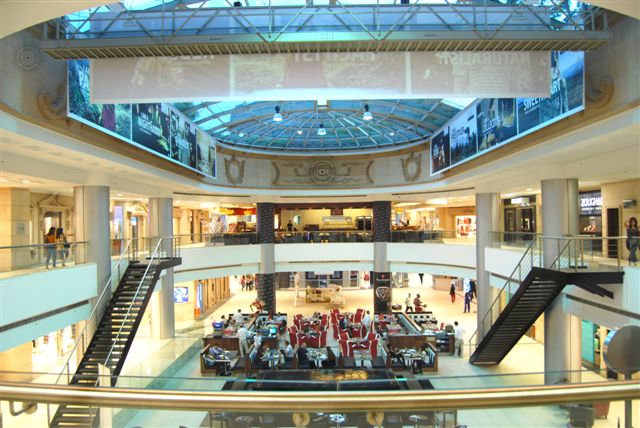Lebanon's Retail Landscape In Need of Customer Service Overhaul
Last weekend, I found myself visiting two different retailers with which I’d previously been unfamiliar. We received housewarming gifts that I wished to exchange for something of more utility, and after being repeatedly reassured that swapping would be effortless, I embarked on said mission.
The first retailer has two branches: one in Jdeideh, north
of Beirut, and another in Ballouneh, in the Ajaltoun district. The gift was
purchased in Ballouneh, and I was going to attempt the exchange in Jdeideh,
which is considerably closer to our home. I entered the shop and presented
the item – a half dozen set of tumblers – to the two ladies seated behind the
cashier desk. Almost instantly I was greeted with, “that’s an old item.”
“Excuse me? This was purchased 24 hours ago from your other
location,” I retorted. As though we were duking it out on a tennis court, the
cashier swiftly shot back that she had to check whether they even carried this item
in Jdeideh, because if they did not, she would deny me the exchange.
I narrowed my eyes and furrowed my brows. How ridiculous did
she sound? “Isn’t this one company? The buyer was reassured that I as a
recipient could easily exchange the item at either branch without a fuss. I’m
not going to navigate the long drive to Ballouneh if I can come here instead.”
She proffered me her
fakest smile and asked me to be patient as she sent a staff member to check the
warehouse for the availability of this exact item. “Unless I’m carrying another
half-dozen tumblers of an identical make and model, I cannot exchange these. I
need to be able to display a full dozen in the showroom.”
With each preposterous word, this salesperson was pushing my buttons. Not only was she so manifestly opposed to making my customer
experience a happy one, but she was linking my exchange to her inventory. Why should
I be concerned with what she has in stock? Is that my job as a customer, to
promote balance in her showroom so that future customers can pluck up a coveted
dozen cups rather than a cursed half dozen? Why do I need to make that my
business? I'm just here for a quick exchange.
A rational line of reasoning should have been as such: the purchase
has already been rendered. The transaction is complete. Customer is not here for a
refund. She is simply picking out a different item and potentially paying a
difference for whatever she homes in on. Store-owner should not be
aggravated as though cash will be dished out from the register back to the
customer.
Anyway, as luck would have it, an identical half-dozen set
was located – in the showroom, in plain sight. And the salesperson was forced
to retreated and accept my exchange. I glared at her for
sabotaging my first and assuredly last visit to her shop.
 |
| A mall in the eastern suburbs of Beirut (photo credit: Al Habtoor Group) |
Next stop, a wholesaler of tableware and decorative items located in Zalka on the second floor of a commercial building. I got the impression that this was more of a B2B operation, as the showroom was devoid of any customers at midday on a weekend, and in lieu of cashiers, there were administrative offices.
This time, however, the exchange was readily facilitated. I was told
the amount of my gift (€56.00) and directed upstairs, where a salesperson
strived to help me find another item within range. The task was admittedly
onerous: the vast majority of items were far pricier than €56,
but I finally unearthed two serving trays tagged at US$ 30 apiece.
Given that the EUR/USD rate is close to 1.10, I quietly congratulated myself on
having met the budget with stellar accuracy. Quick mental math suggested I might
even receive a couple bucks back, as $60 is lesser than €56.
Surprisingly, the office executive said I owed US$ 5. “How’s
that?” I inquired. She had applied an 11% sales tax to the trays, bringing
their total to $67. Fine, I acceded, but how about the item I am returning
tagged at €56?
Is that not subject to sales tax as well?
“Yes, and it was already paid by the original buyer. But
when you exchange an item, you forfeit the sales tax.” So essentially this
wholesaler was collecting tax on an item that was going back into inventory
and back onto the balance sheet. And now they were collecting tax again from me
for the exchanged item. How is that ethical business practice? That’s
absolutely mind-numbing.
I opened my wallet and handed her a $5 bill. “Can I get a
receipt, please?”
“No, we don’t issue receipts.”
Well, forgive me for asking. My oversight.
Why would a self-respecting, honest-to-goodness business issue its customers
receipts upon purchase? That would defy all logic of the modern marketplace.
The sad reality is that poor customer care is rampant across the
Lebanese retail landscape. With the general exception of major brands that
boast a network of locations across the country and enjoy excellent reputations to
boot, most small- to medium-size businesses have yet to understand the value of customer
care in perpetuating a client relationship and steady footfall. If you want folks to “shop local” and “support local,” two
phrases we’ve been barraged with since the start of Lebanon’s deep financial
crises, then these local enterprises better measure up to basic standards of customer service. Otherwise, I’m happy to take my business
elsewhere, where it’s certain to be appreciated.
Enjoyed this post? Never miss out on future posts by following Beirutista here.






Comments
Post a Comment